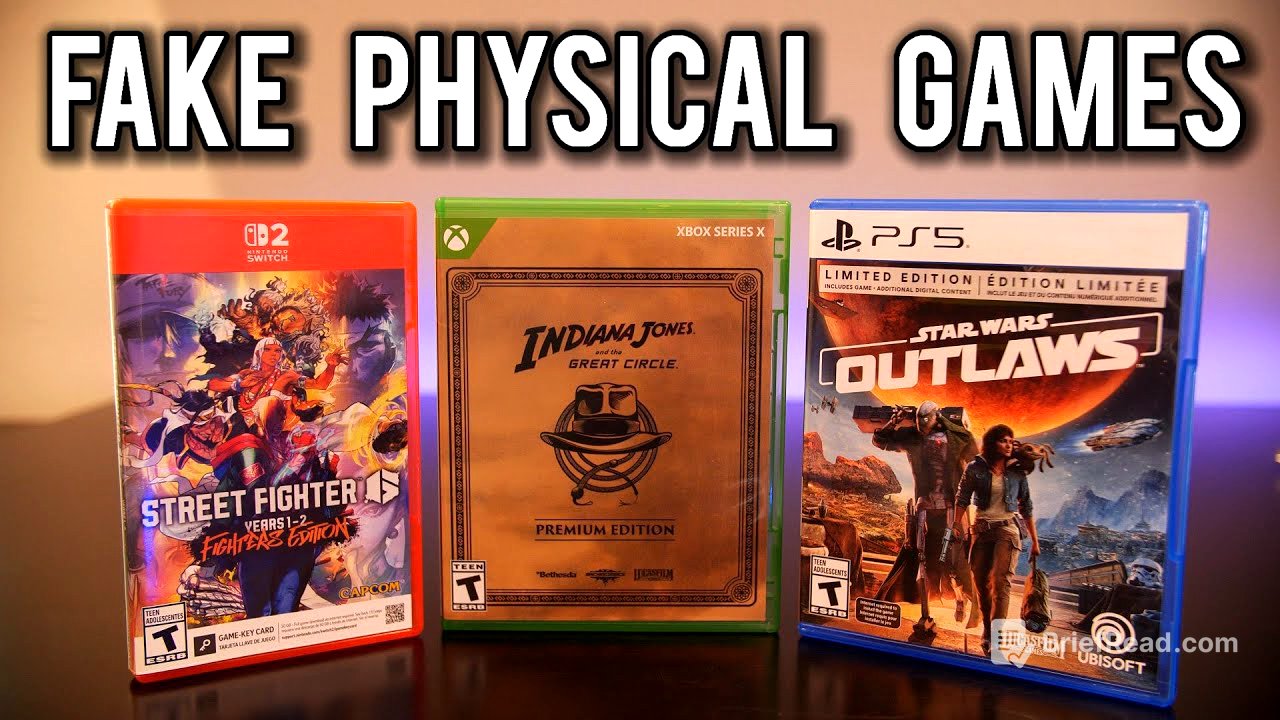TLDR;
The video discusses the decline of physical video games and the rise of "fake physical games," which are physical products that require significant downloads to play. The author expresses his frustration with this trend, highlighting examples from Xbox, PlayStation, and the upcoming Nintendo Switch 2. He also touches on the implications for game preservation and the future of the retro gaming market.
- Physical games are dying, replaced by physical products that require downloads.
- Xbox has largely abandoned physical games in favor of digital downloads and Game Pass.
- PlayStation offers more physical games but still has issues with incomplete games on disc.
- Nintendo Switch 2's game key cards may require large downloads and SD card expansion.
- The author is concerned about game preservation and the future of retro gaming.
Intro [0:00]
The video starts by addressing the trend of physical games that are not truly physical, but rather physical products that grant a license to download and play the game. This entitlement can be revoked, as seen with games like Concord, which Sony abandoned. The author expresses concern over the decline of physical games and the rise of these "fake physical products," which he sees as a worrying and disingenuous trend. He recalls his early irritation with DRM, citing the example of Half-Life 2, which required an internet connection to download even when purchased on CDs.
Fake Physical Games [2:10]
The author discusses how physical games are almost dead, with publishers increasingly offering physical products that are essentially just entitlements to download games. He argues that digital downloads are sometimes preferable because they are tied to an account and should theoretically carry forward as long as the hardware maker supports them. While hardware makers like Xbox, Sony, and Nintendo offer ways to play existing libraries on new hardware, the author questions what this means for physical games. He notes that CD Projekt Red, which owns GOG, is an exception, as they are committed to game preservation and offer complete games on physical media, such as Cyberpunk 2077 on two discs for Xbox. Microsoft, however, has largely abandoned physical games since Gears of War 5, with recent releases like Indiana Jones requiring mandatory downloads. Games like Microsoft Flight Simulator 2024 do not even have physical versions, and The Elder Scrolls Oblivion Remastered has no physical release at all. Doom: The Dark Ages on PlayStation 5 is also not the complete version on disc.
A Word about Switch 2 Game Key Cards [8:05]
The video shifts to the Nintendo Switch 2 and the controversy surrounding its game key cards. These cards often require large downloads and may necessitate a micro SD card expansion due to exceeding the console's maximum capacity. The author notes that while game key cards allow for resale, they are essentially just physical products rather than true physical games. This has caused frustration and confusion among consumers. With game sizes increasing, it is likely that many Switch 2 games will exceed the 64 GB capacity, potentially reaching 100 GB or more. The author expresses concern that hardware makers and publishers are struggling to keep up with the growing size of games.
Conclusion [11:48]
The author concludes by reiterating his disappointment with the decline of physical media. He wonders about the future of the retro video game market, questioning what it will look like in 25 to 30 years when many games may no longer be available or will only exist as partial downloads. He expresses his dislike for "physical products," game key cards, codes in boxes, and games with only a portion of the content on disc, viewing these practices as lazy. He believes that publishers and hardware makers should work harder to provide complete physical games, unless storage limits genuinely prevent it.









